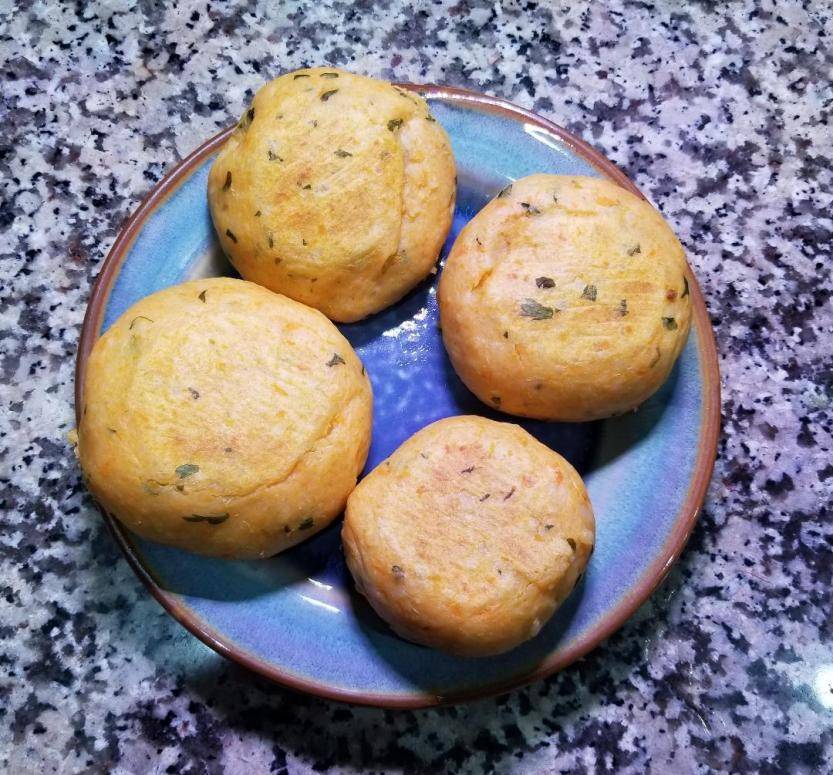No Oil Potato Cakes
No Oil Potato Cakes
These things are stupid simple to make. Simply steam a few potatoes along with one sweet potato, let cool, mash, add whatever the hell you want, form into patties and bake @ 350 degrees until slightly brown. This is the first time I've made them, so I kept it simple with just salt and cilantro. Next time I'll likely add corn or peas or maybe some red bell pepper to sweeten it up. It's a very open ended recipe which you can tweak however you'd like.

No Oil Potato Cakes
These things are stupid simple to make. Simply steam a few potatoes along with one sweet potato, let cool, mash, add whatever the hell you want, form into patties and bake @ 350 degrees until slightly brown. This is the first time I've made them, so I kept it simple with just salt and cilantro. Next time I'll likely add corn or peas or maybe some red bell pepper to sweeten it up. It's a very open ended recipe which you can tweak however you'd like.





